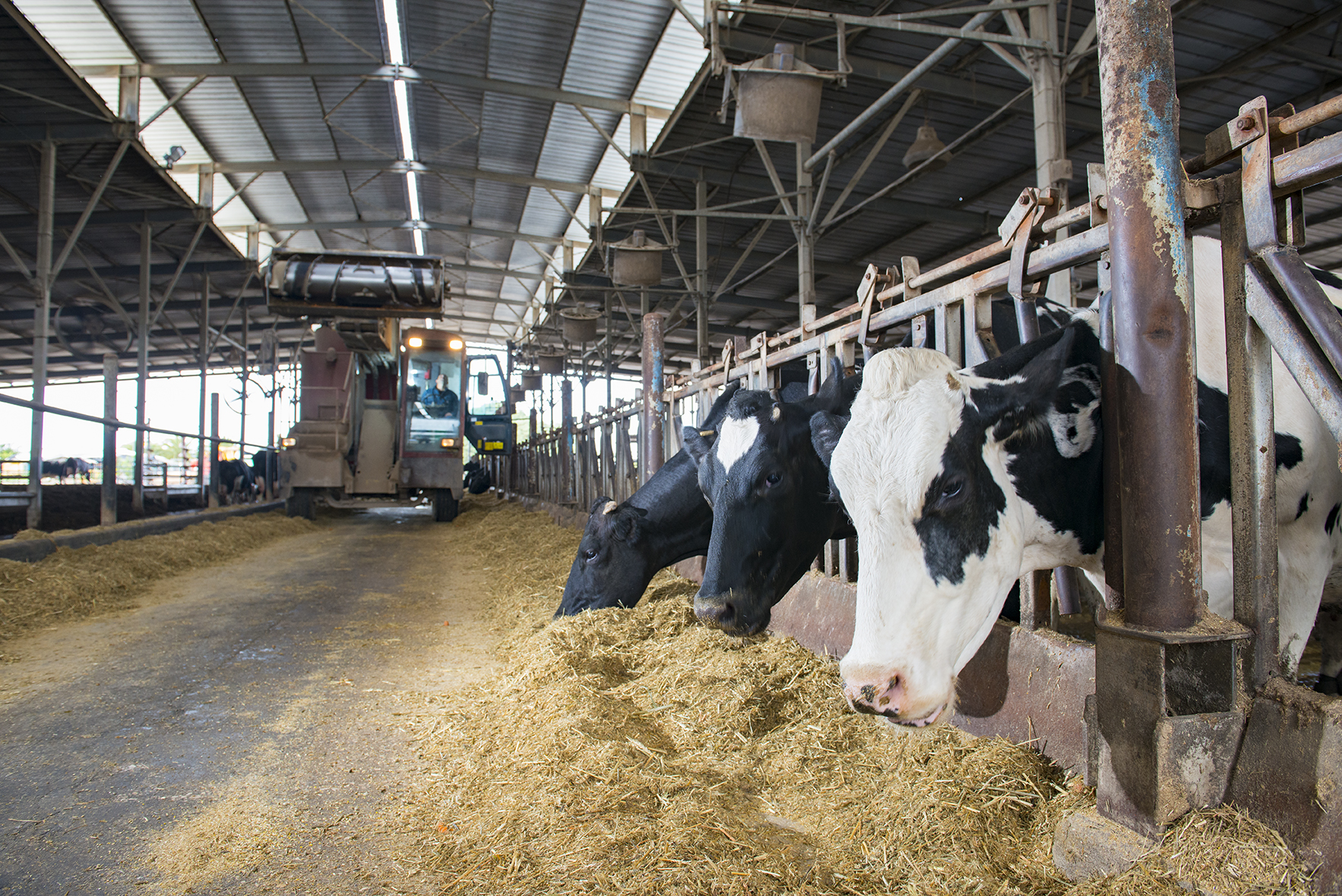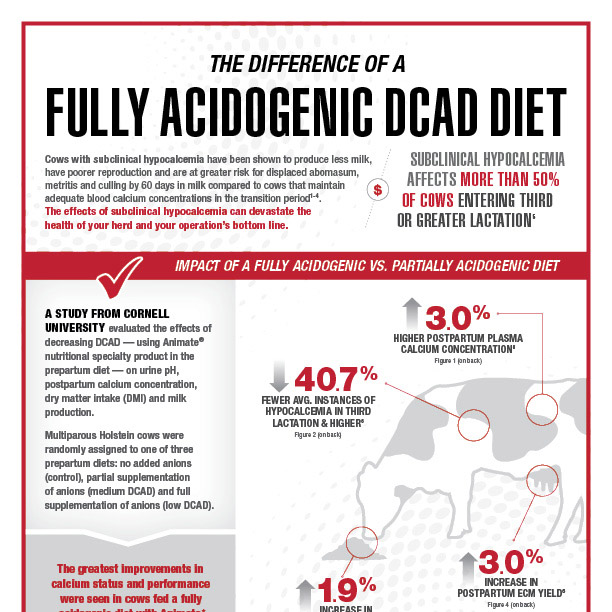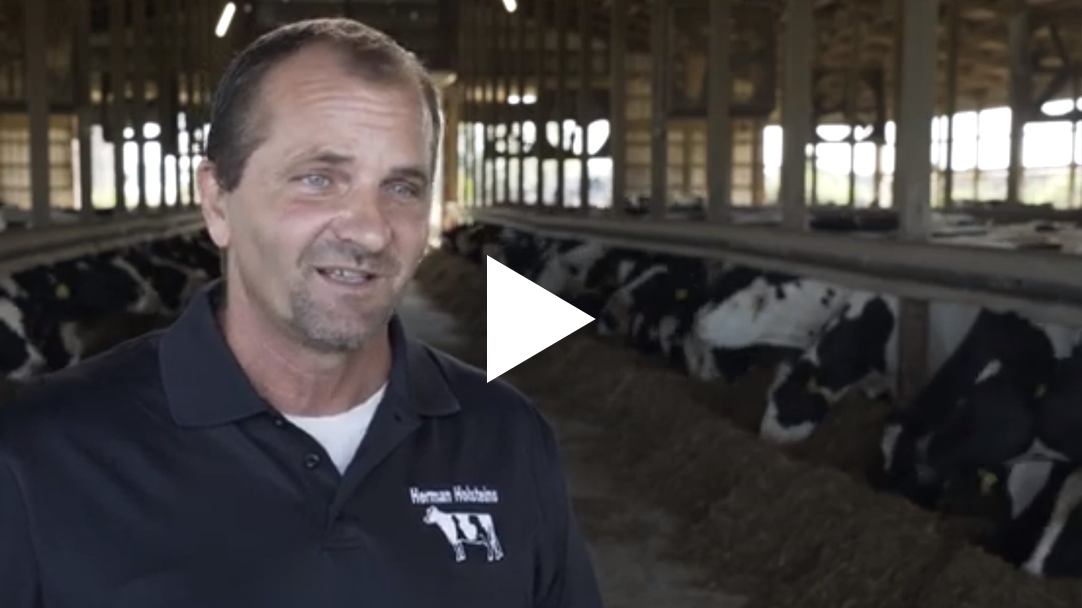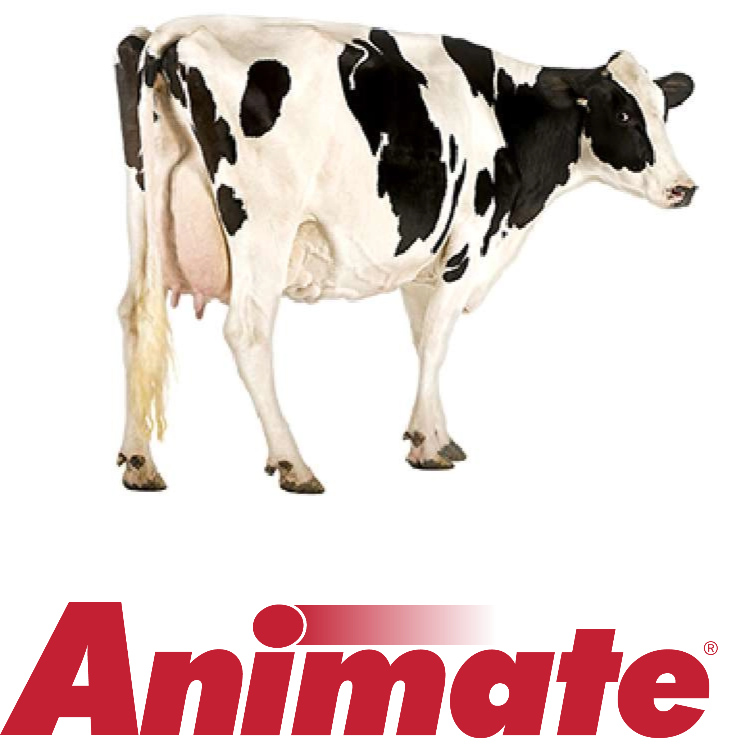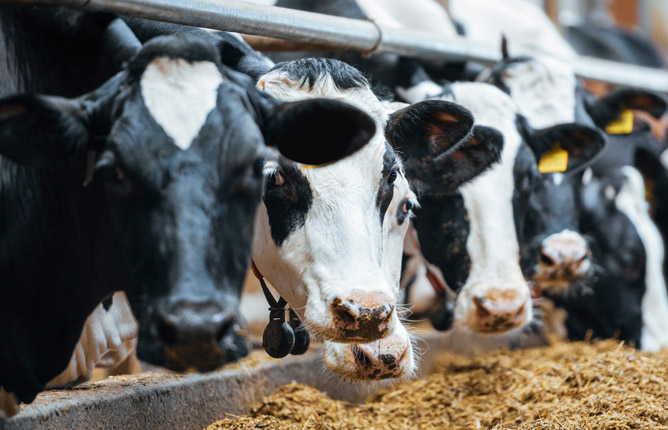
by Kristen Devine, Ph.D., PAS, Phibro Animal Health
Urine pH testing has been used for decades as a management tool to successfully feed a prepartum negative Dietary Cation Anion Difference (DCAD) diet. But why?
Urine pH testing is one of the easiest cow-side tests in the dairy industry. Other blood, milk, tissue, or urine metabolite monitoring practices require sample containers, shipping to a lab, waiting for results and interpretation. Urine pH testing provides an immediate, direct insight into what is happening to the acid-base status of the cow. The costs are minimal, requiring only a few pieces of pH paper and the test involves non-invasive stimulation for the cow to urinate.
What does urine pH tell us? There is a direct relationship between urine pH and metabolic acidosis that is influenced by the diet mineral concentrations of mainly sodium, potassium, chloride and sulfur. The urine pH response to changes in these minerals happens in two to three days and can be continuously monitored as long as the negative DCAD program is fed.
Urine pH testing is an insightful technology used in connection with negative DCAD dietary programs. If you feed a yeast product to stabilize rumen pH and prevent ruminal acidosis, how do you test whether that rumen fluid has become less acidic? If you feed a mycotoxin binder, how do you measure how much of the toxin is still being absorbed by the cow? Rumen fluid and blood samples can be taken and tested, but that is invasive to the cow, costly and time consuming. The typical practice is to feed a product or strategy and wait to see if the cows benefit from it through health or production improvements. Urine pH measurement results are immediate and allow you to know if the prepartum strategy is working before the cow calves and, if needed, correct it. Urine pH testing can be used to predict outcomes instead of just diagnosing a problem.
What if urine pH testing results fall outside the intended target range? If the average urine pH is too high or low based on your targeted range, this information can be used to adjust the inclusion rate of the anion source in the diet. This allows us to “listen” to the cow and gives us time to adjust the diet to meet the desired urine pH target.
If variation in urine pH continues to occur, it then opens the door to discovering unexpected feed management errors, which typically impact not only the transition group but the entire herd. Knowing a problem exists is the first step in correcting the inconsistencies before they have a chance to negatively impact the cow.
The feedback of fluctuating urine pH in the prepartum period can indicate problems associated with the following:
- Forage particle size, which can contribute to excessive sorting.
- Under- or over-mixing related to mixing wagon errors.
- Cows running out of feed, leading to slug feeding, causing variable intakes over time.
- An unexpected change in forage mineral levels that wasn’t accounted for in ration formulation.
- A variety of other causes, such as opportunities related to feeding equipment maintenance and more.
The change in urine pH outside of your targeted range is an early warning sign that can be used to “right the ship” for not only the transition group but the entire herd.
To those who do not want to use a negative DCAD strategy in order to avoid urine pH sampling, how are you verifying if the alternative program is working? Is there such a test or is this test invasive? Do you have to wait to measure success through results after calving? If you don’t see those results, how do you find out what went wrong or manage the program for success?
Urine pH testing is an easy way to take advantage of a proven technology to make sure the cows are consuming the diet that was specifically formulated to meet their requirements. In addition, urine pH testing can be used to help dial in the diet. Ultimately, monitoring the urine pH of prepartum cows allows you to catch unexpected changes in feeding management that could negatively impact the production and health of not only your transition cows but your entire herd.
AN063924GLB ©2024 Phibro Animal Health Corporation.
Phibro, Phibro logo design and Healthy Animals. Healthy Food. Healthy World. are trademarks owned by or licensed to Phibro Animal Health Corporation or its affiliates.
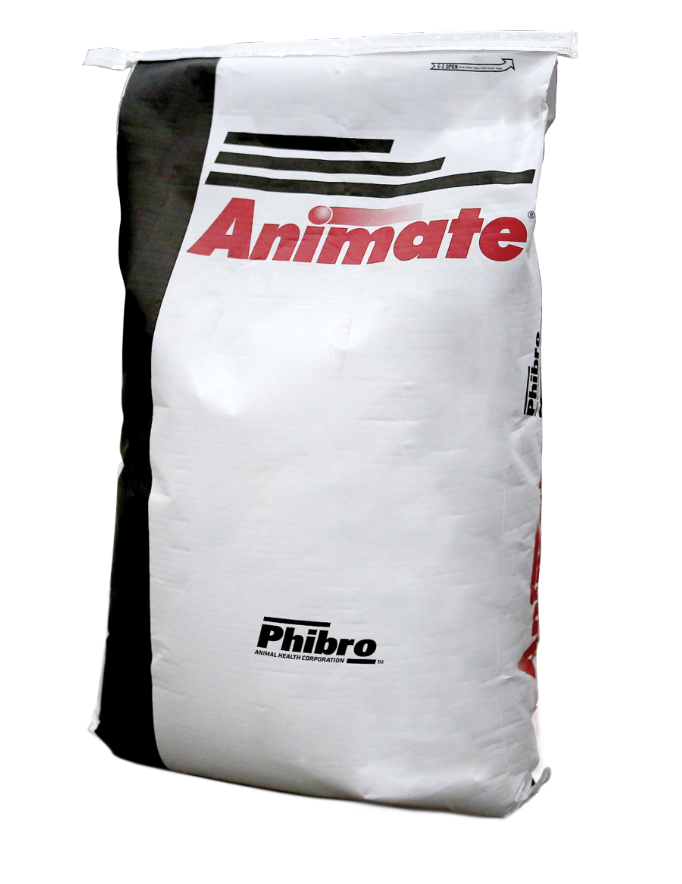
Start with the Right Anion Source
Animate® nutritional specialty product is a unique and patented anionic mineral that has been shown to help keep transition cows healthy and productive.
Learn about Animate







